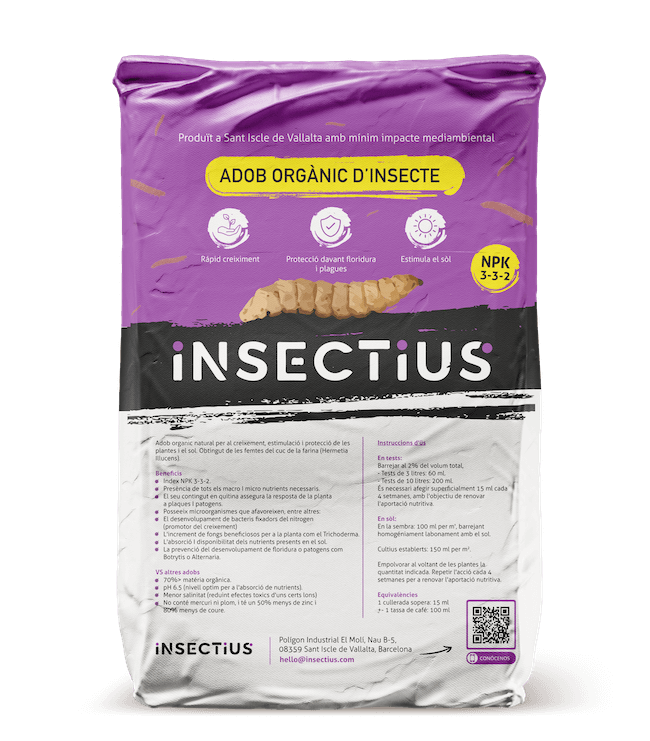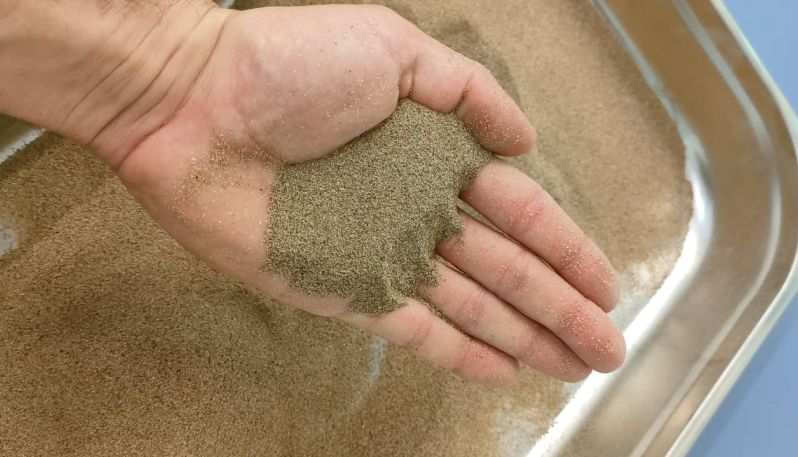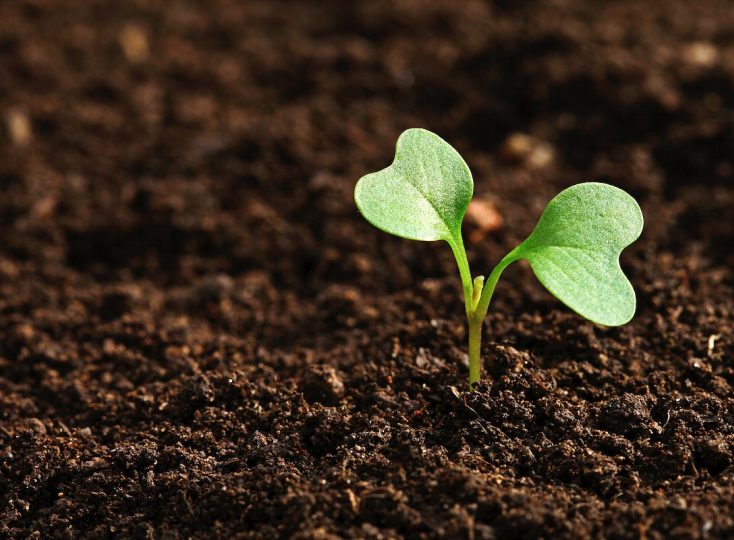Frass is a high-quality organic fertilizer produced by insects.

Frass is rich in nitrogen, phosphorus, and potassium, essential nutrients for plant growth and development.
Frass improves soil structure, increasing its water and nutrient retention capacity.
The nutrients in frass stimulate plant growth, promoting higher yields and better-quality crops.
Frass acts as a natural pest and disease repellent, protecting plants in a safe and sustainable way.
Our frass is a high-quality organic fertilizer, rich in essential nutrients for plant growth:
3
Nitrogen
3
Phosphorus
3
Potassium

Discover the power of frass, an insect-based organic fertilizer that improves plant health and yield.

Frass is beneficial for all types of plants, including vegetables, fruits, flowers, trees, and shrubs. Its high nutrient content improves plant health and performance, promoting more vigorous growth and higher yields.
Frass is a high-quality organic fertilizer rich in essential nutrients for plant growth. Its balanced composition and ability to improve soil structure make it a superior option compared to other organic fertilizers.
Yes, frass is safe for plants and the environment. As an organic product, it contains no harmful chemicals and is completely safe for use in gardens, orchards, and crops.
Frass can be applied in various ways, such as a base fertilizer, soil amendment, or foliar tonic. The dosage and frequency of application will depend on the specific needs of the plants and the type of crop.
Using frass has a positive environmental impact as it reduces reliance on chemical fertilizers and promotes sustainable farming practices. Additionally, frass is a by-product of insect farming, an eco-friendly activity that requires fewer resources and generates less waste than conventional agriculture.
Using frass and insects not only benefits animals but also the planet. Learn how our innovative solution contributes to a more sustainable future:

Emission Reduction
Lower reliance on carbon-intensive resources.
Waste Recycling
We transform organic waste into valuable nutrients.
Resource Conservation
Less use of water and farmland compared to conventional protein sources.
Biodiversity
Supporting ecosystem health through sustainable practices.